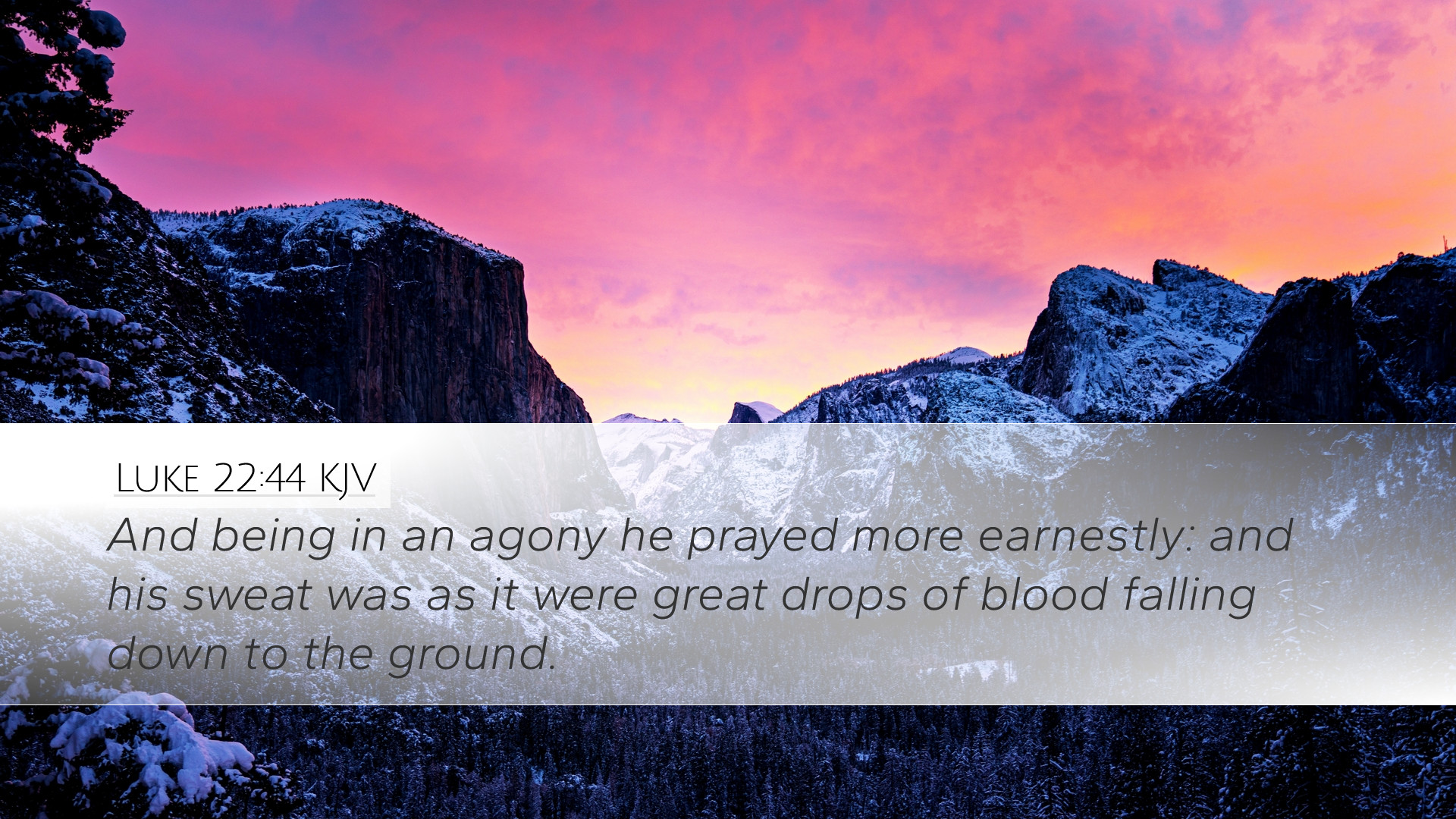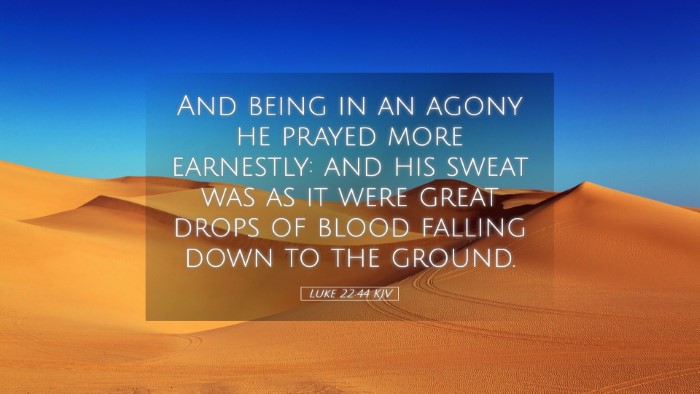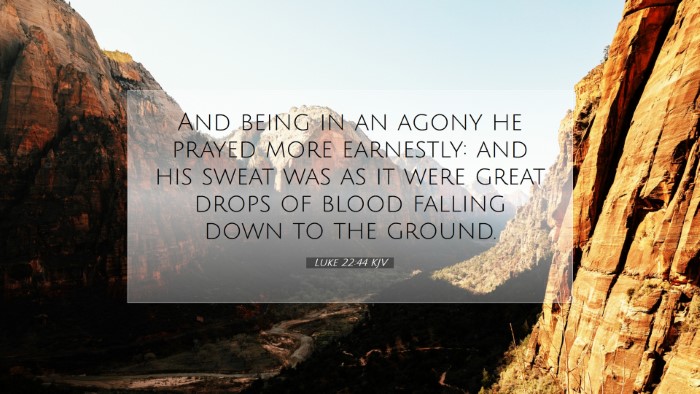Commentary on Luke 22:44
Luke 22:44 states:
"And being in an agony, he prayed more earnestly: and his sweat was as it were great drops of blood falling down to the ground."
Introduction
This verse is one of the most poignant accounts in the Gospel of Luke, capturing the intense emotional and spiritual turmoil experienced by Jesus in the Garden of Gethsemane. The weight of impending crucifixion bears down on Him, leading to a scene rich in theological significance. The insights provided by various public domain commentators shine a light on the multifaceted implications of His experience.
The Context of Prayer
In the immediate context, the verse follows Jesus’ warnings to His disciples regarding the trials ahead (Luke 22:39-43). The act of praying while in distress is a model for believers. As Matthew Henry notes, "in times of great distress, prayer is our refuge." This reflects the importance of seeking divine assistance amid agony.
Agony and Earnestness
The term "agony" in this passage indicates deep emotional and spiritual conflict. Albert Barnes emphasizes the profound sorrow and struggle that Jesus faced, which was not merely physical but deeply rooted in the spiritual implications of sin and separation from the Father. The earnestness of His prayer signifies a vital communion with God during times of difficulty.
- Earnestness in Prayer: Jesus' prayer was not casual but intensely fervent. Adam Clarke elaborates that earnest prayer often coincides with the greatest crises, demonstrating the earnestness of Jesus' petition for strength to endure the impending trial.
- The Humanity of Christ: This moment reveals the true humanity of Christ. He experienced fear, anxiety, and a longing for companionship, reflecting a profound connection with human suffering as pointed out by Matthew Henry.
Sweat as Great Drops of Blood
The description of sweat like "great drops of blood" showcases the extreme pressure under which Jesus operated. Several commentators, including Clarke, propose that this manifestation signifies not only intense emotion but also the literal physical impact of stress. It invites readers to contemplate the depths of Christ's suffering.
- Physiological Response: The phenomenon of hematidrosis (sweating blood) is documented in medical literature as a response to extreme stress, illustrating the reality of Jesus' anguish in a scientifically relatable manner.
- Symbolism: The blood represents the impending sacrifice that will be fulfilled on the cross, emphasizing the notion of redemption and atonement woven throughout the narrative and the entirety of Scripture.
Theological Implications
Luke 22:44 provides a window into the theological depths of Christ’s suffering, encapsulating several key doctrines important for pastors, students, theologians, and scholars.
Christ’s Identification with Humanity
This verse exemplifies Christ’s profound identification with humanity’s struggles. As Barnes articulates, “He became a substitute for us in our sufferings.” This establishes a framework for understanding how Jesus empathizes with human pain and offers comfort to believers. In times of suffering, they can take solace knowing that Jesus intimately understands their struggles.
Precursor to Redemption
This moment also serves as a precursor to the redemptive plan. Jesus, through His agony, begins the path that leads to Golgotha. Henry notes that this suffering was essential, fulfilling the prophecies and the mission of redemption set forth by God. It underscores the gravity and significance of His work for humanity's salvation.
The Role of Angels
Luke 22:43, preceding this verse, mentions an angel strengthening Jesus. This implies that even in His greatest need, divine assistance was present. Clarke highlights the importance of angelic ministry in believers’ lives, encouraging the community to trust that they are not alone in their moments of despair.
- Hope in Support: The presence of angels signifies God’s care. Even in moments of overwhelming sorrow, the assurance of heavenly aid can provide hope.
- Encouragement for Believers: Believers are reminded that in their suffering, they too can expect divine intervention, whether through spiritual means or through community support.
Conclusion
Luke 22:44 captures an essential moment in Jesus’ earthly ministry, where His humanity is on full display. The cumulative insights from various commentaries provide a deeper understanding of this verse, inviting pastors and scholars to reflect on the implications of His agony in relation to human suffering, prayer, and divine support.
This account not only enhances biblical knowledge but also serves as a profound source of comfort, illustrating that Jesus’ willingness to embrace suffering leads to hope and redemption for all humanity.


